In the light of the recent successes by the Bangladesh women’s football team in international matches, I have decided to publish in my blog an interview that I carried out with two players in 2004 in Bangladesh for my exhibition on Dhaka City in the UK. This interview was part of my exhibition which toured several venues in London and Luton during 2005-10. It took place at the Bangladesh Mahila Krira Complex ((Women’s Sports Complex).
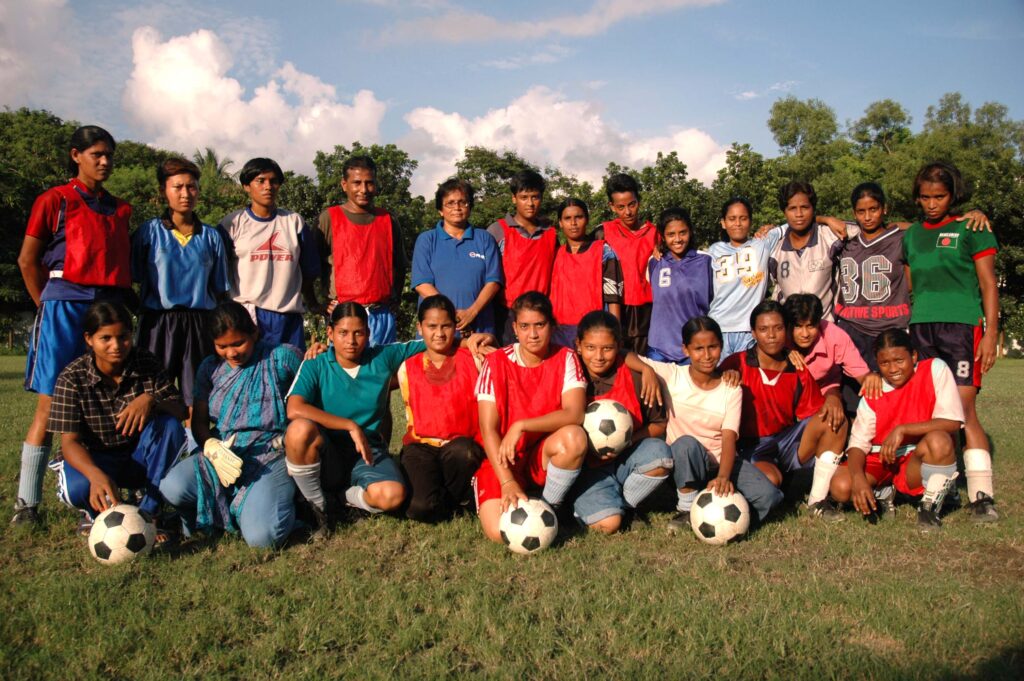
Women’s football is a recent phenomenon in Bangladesh, started by the Bangladesh Football Federation as part of the Federation of International Football Association’s (FIFA) initiative to promote women’s football in the country. This team is made up of female players from a range of different sports, and non had any previous experience of playing football. I interviewed them during a practice session in July 2004 coached by ex-footballer/cricket player, Mohammad Abdul Yusuf (above: fourth from left on the back). They were preparing for the first-ever women’s football tournament in Bangladesh scheduled for October 2004.
Sraboni Poddar (24) and Dalia Akhtar (20), both originally from Madharipur, are keen to develop their football skills. Sraboni is a resident of Mirpur, while Dalia has only been in Dhaka for two months.
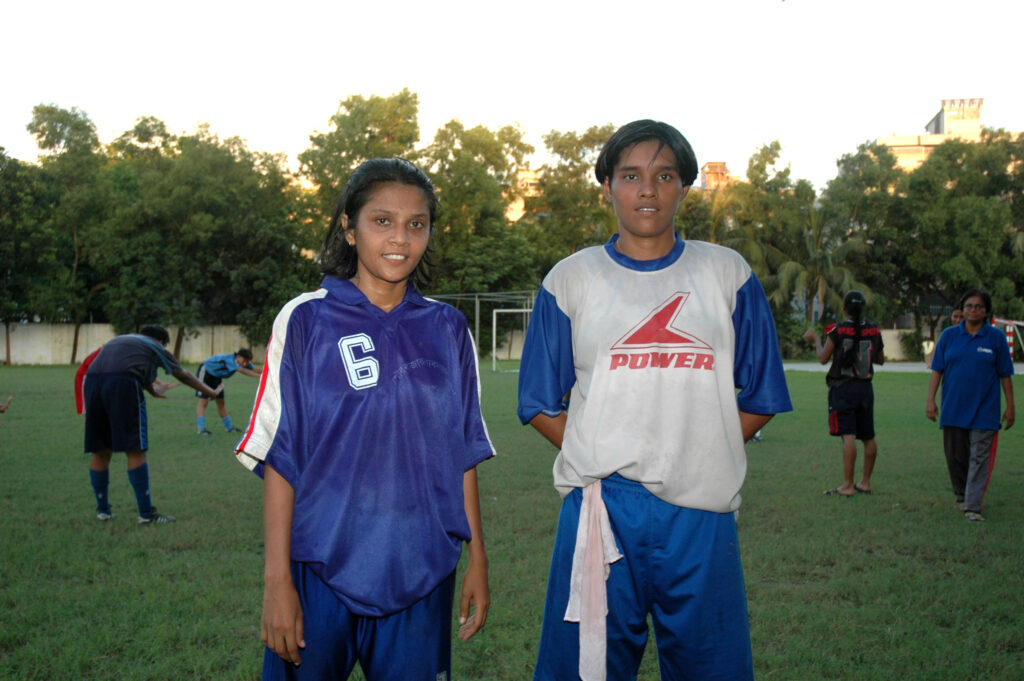
They are both handball players, Dalia on the national team, and only Sraboni is interested in becoming a good footballer and developing her football skills. Although Dalia would like to continue to play football her favourite sport is still handball. They are both very grateful for this chance to practice football – enjoying the experience immensely – and looking forward to the tournament later in the year.
Sraboni has a master’s degree in English and her passion is to become a good football player. She feels that if there were adequate resources available and people had a more developed mentality then girls in Bangladesh would be able to achieve a great deal more in sport. The girls are hardworking and their interest levels in sports are quite high, but due to certain people’s backward mentality and resourcing problems, girls are not getting the chance to fully develop their talents.
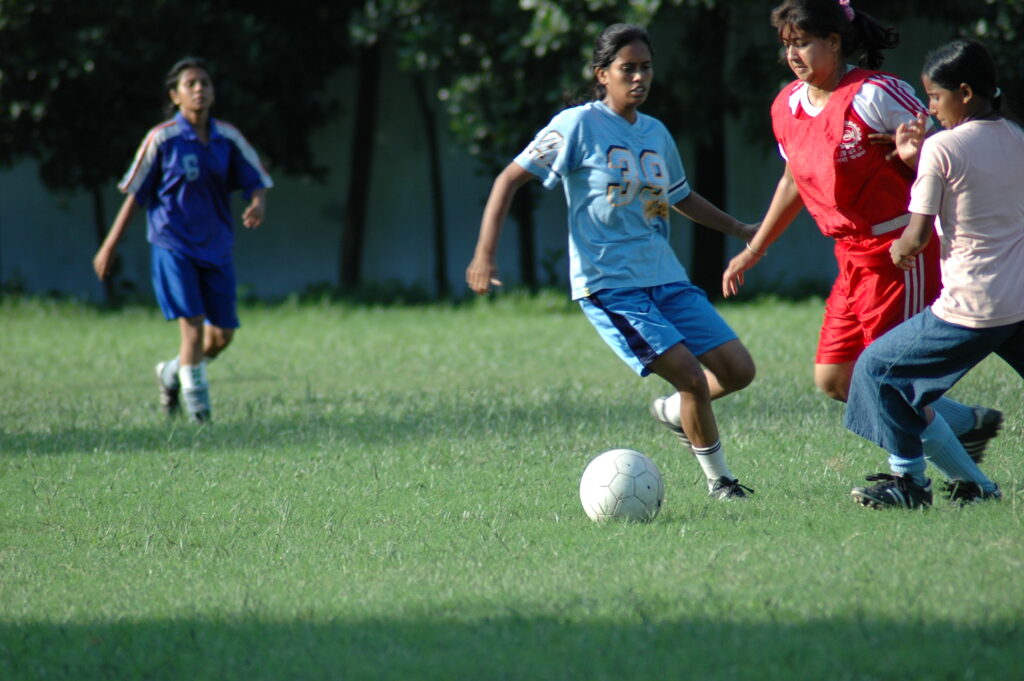
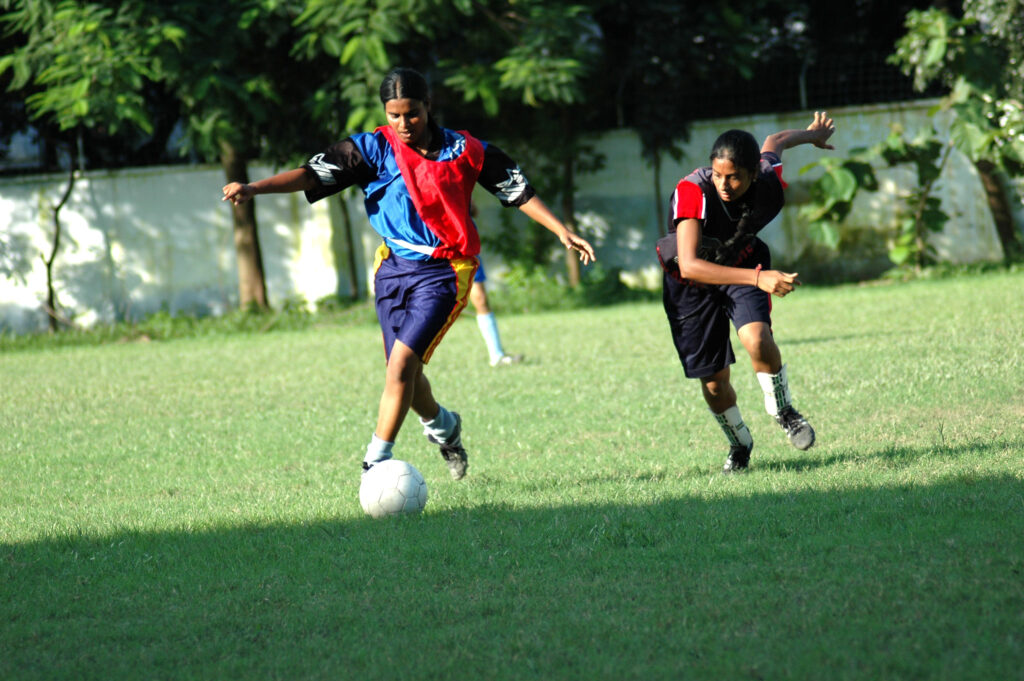
In terms of family support, they both enjoy a lot of encouragement and support from their parents but pointed out that the attitudes of some people in society were quite backward. When they travel to play sports, they find sometimes people make bad comments seeing them wearing shorts. There is a feeling among some people, including Sraboni’s family, that, had they been born in a different country, such as neighbouring India, where sports are more developed and people’s mentality more progressive with respect to girls participation, they would have achieved more.
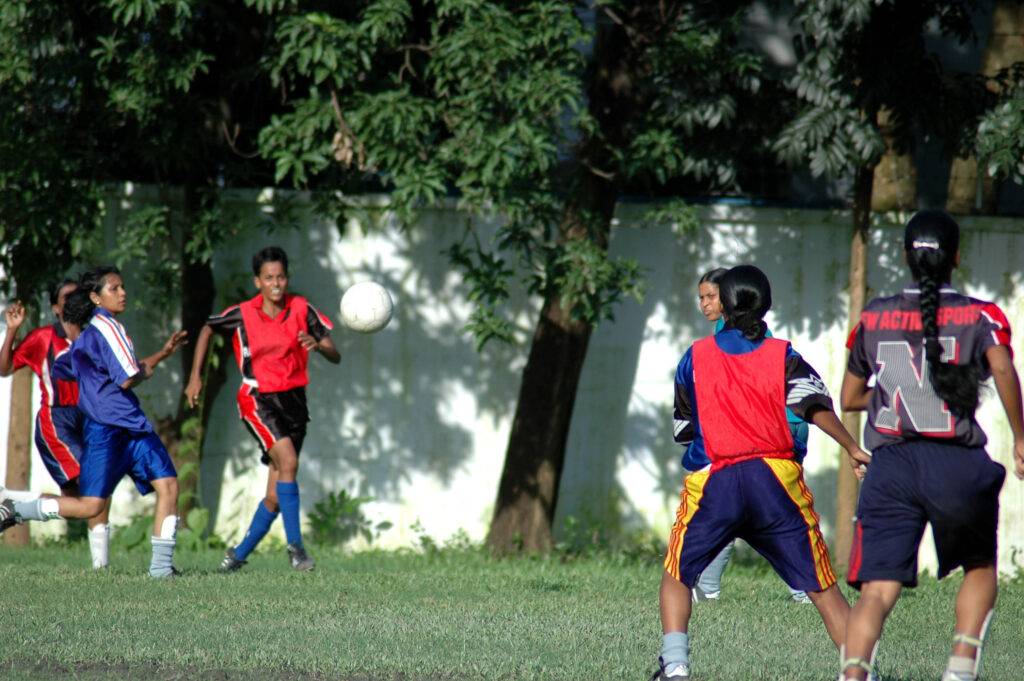
But regardless of the constraints faced they feel that Dhaka City is better than local towns within Bangladesh in terms of both opportunities for girls and people’s attitudes.
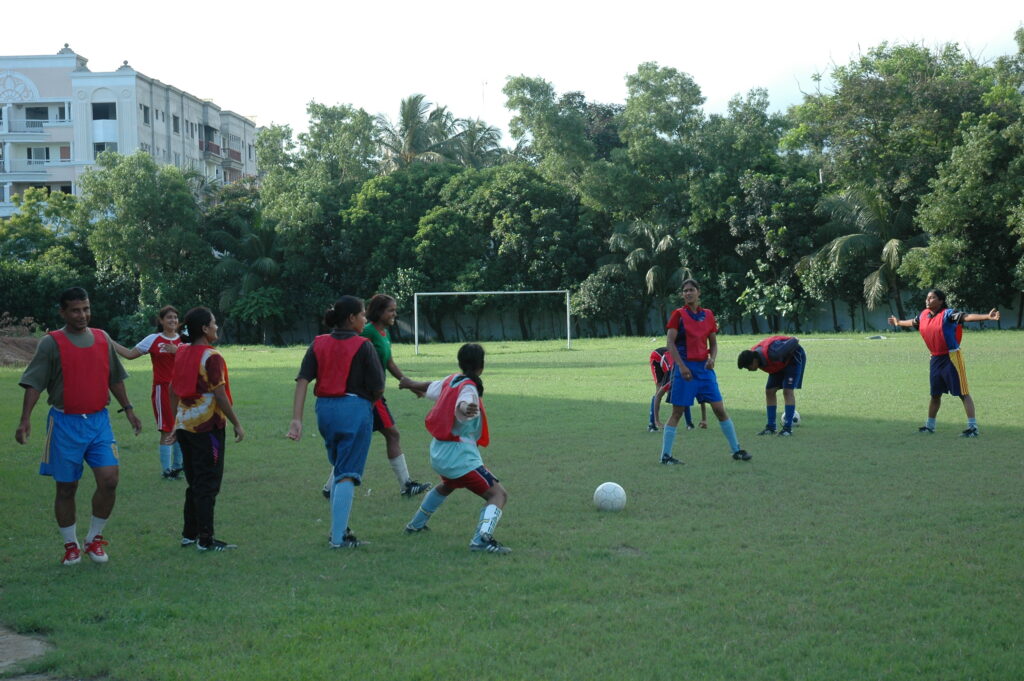
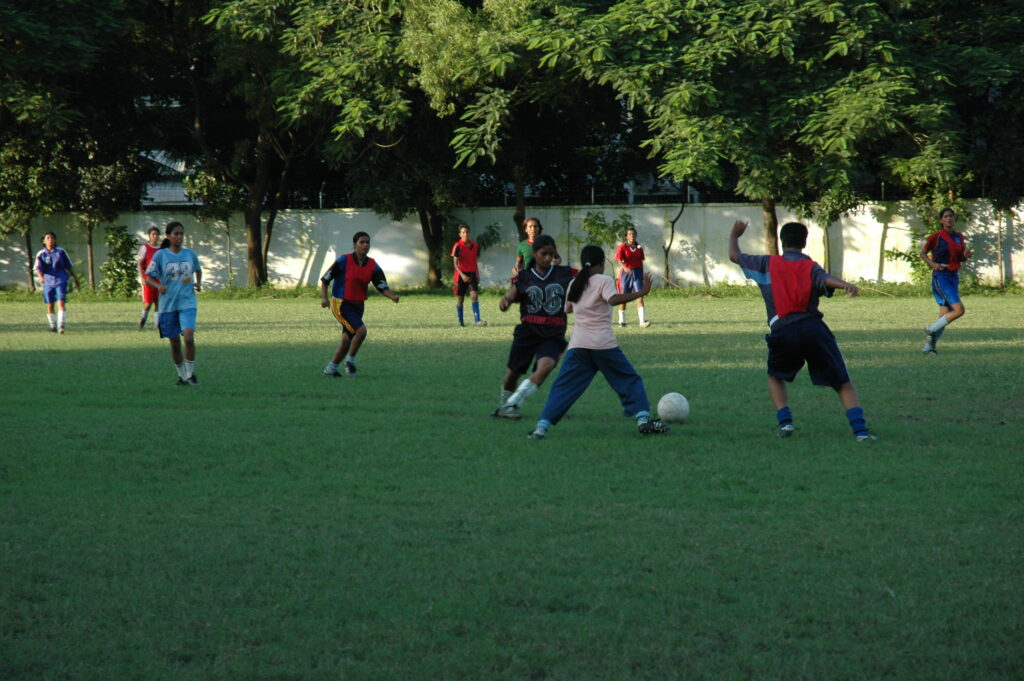
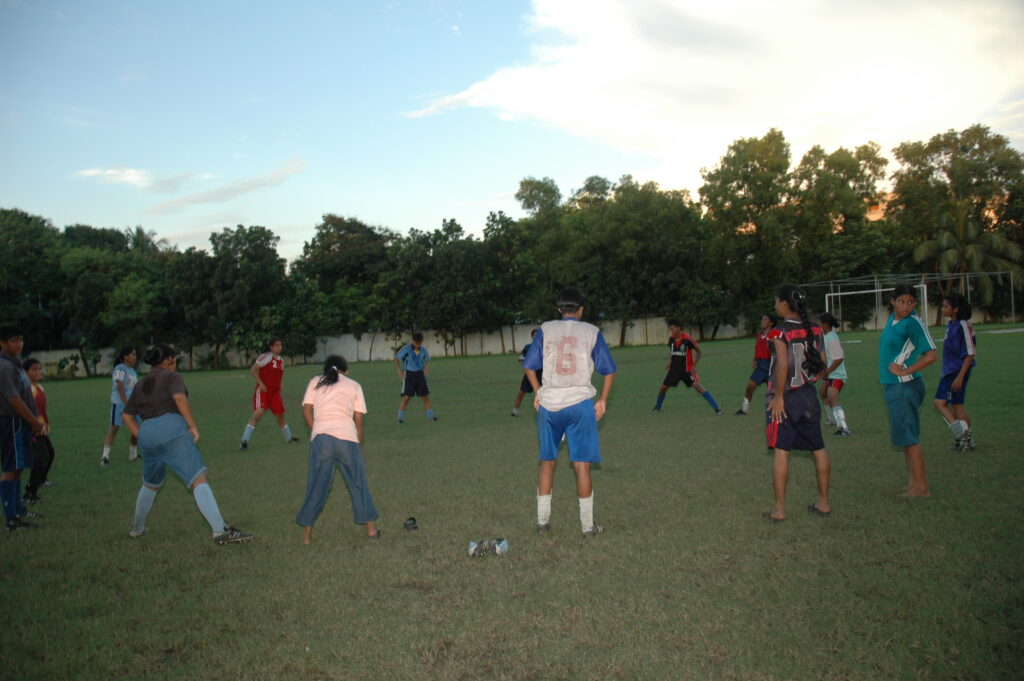
I worked at Charlton Athletic Football Club for two and half years during 2002-4 as the manager of the club’s initiatives to promote race equality, social inclusion and community cohesion through utilising arts and sports. There, I had a large budget and tried to promote women’s football by supplying coaches to deliver coaching sessions for girls in schools and promoting interest in attending women’s football matches. I had free tickets to give out to the community – groups and schools. While normal male based football matches were very popular and people took free tickets eagerly, at first it was difficult to get people to take free tickets for women’s matches at the club. But I am sure things have changed now.
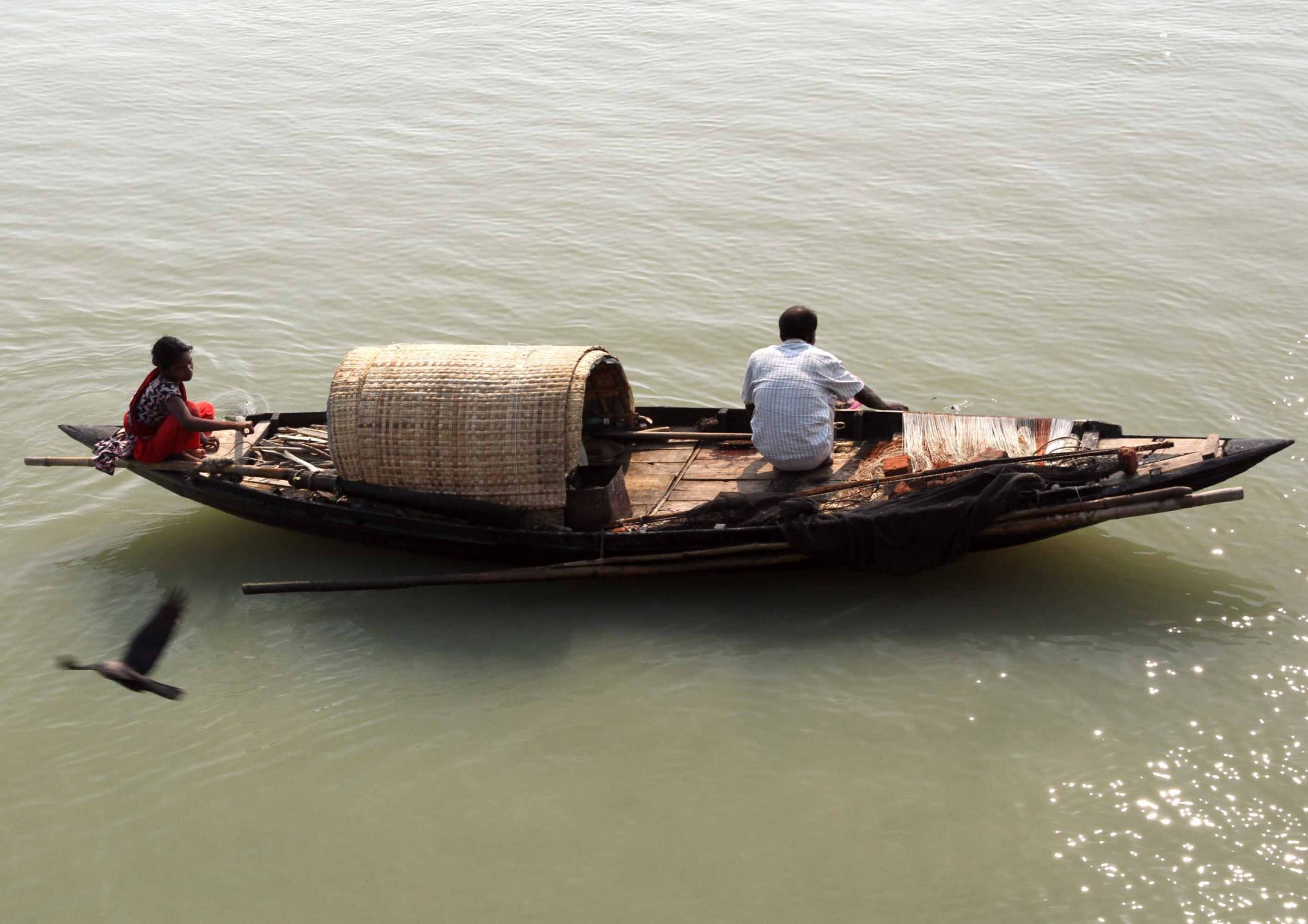
Great content! Keep up the good work!